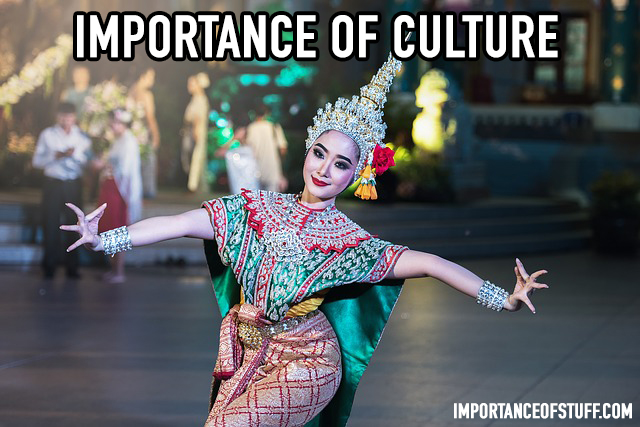Culture is what a society lives on. Each society can see its culture reflected in its language, folktales, music, literature, and even in the way it raises its people. Each culture also has its own symbols. In Russia, for example, nestingdolls are seen as symbols of fertility.This expression of culture is the definition and the determinant of the kind of society that it is, and the way others view it. Apart from this, however, culture has a host of sociological and economic values. It is intrinsic in gaining prosperity, learning, and individual and societal betterment. In this article, we will look at how culture affects a society, and the advantages inherent in staying rooted in one’s culture.

Sense of belonging
Participation in the cultural activities of their community brings an individual a host of personal benefits. Such activities can provide an experience to the individual that is always deeply moving- it may be unsettling to some, delightful to a few, and inspiring to others, but its impact is always deep, wondrous, and great. It creates a sense of belonging that few other activities will bring; for instance, an expatriate will actually feel the pull of their roots when they come into contact with the traditional food of their culture. It is only by participating in a culture that an individual is able to forge an identity of their own; instead of completely merging with the homogeneous society that globalization is constantly threatening us with, an individual is able to create a unique niche for themselves.
Enhances learning
Some studies have shown that children who take an active interest in cultural activities, such as taking up lessons in drawing and sculpting, singing, or dancing and the performing arts, are more likely to get better grades and then go on to finish higher education than those who don’t. Schools that integrate the arts in their curriculum also show better performance of students in the no-arts subjects like the sciences and mathematics than schools that don’t. This is because there is a direct correlation between culture and enhanced ability to learn. Participating in cultural activities promotes self awareness, better self esteem, enhanced thinking skills and analytical reasoning, and makes the student more tenacious, all of which contribute to better learning.
Promotes physical health
Participation in cultural activities promotes the health and overall well being of an individual and of a society at large. This is because governments in various countries are taking more and more steps to integrate cultural considerations into their healthcare systems, understanding that the health requirement of each culture varies significantly. For instance, an immigrant needs to undertake certain health checks and immunizations when they move to a different country; this is done keeping in mind the cultural differences between the two countries that have considerable impact on their healthcare systems.
Promotes mental health
Participation in the arts and culture is also important for the mental well being of an individual. For instance, a person who has migrated to a different country is likely to feel lost and alienated at first. However, the scope of being able to mingle with people of their own culture, as well as participating is some unique cultural activities like a dance form or cooking can help in mitigating isolation and feel more at home. Similarly, participating in the cultural activities of the country they have moved to also helps expatriates alleviate their loneliness and better equipped to embrace the reality of being in a different country without feeling like a fish out of water. The emotional well being this scope of socialization brings has far reaching effects on the mental, physical, and financial prosperity of an individual. This is especially true for older adults who have a hard time integrating into an alien culture.
Tourist attraction
The culture of a region acts as a great tourist attraction. Cultural events draw tourists from all over the world eager to share in a unique cultural experience. For instance, the Carnival in Rio and the Woodstock in USA see a million tourists visiting the country to take part in the festivals. This leads to a great increase in revenue, and also creates a number of jobs.
Culture is the glue that brings about social cohesion. Various forms of socio-cultural activities and events such as fairs, classes and feasts help to bring the community together as a whole. This helps in forging string bonds between the community, which leads to sharing of ideas and overall growth of the society as a whole. Communities that stand together are better at managing risks and troublesome issues in case they should arise. Such communities also act as a support system for its members.